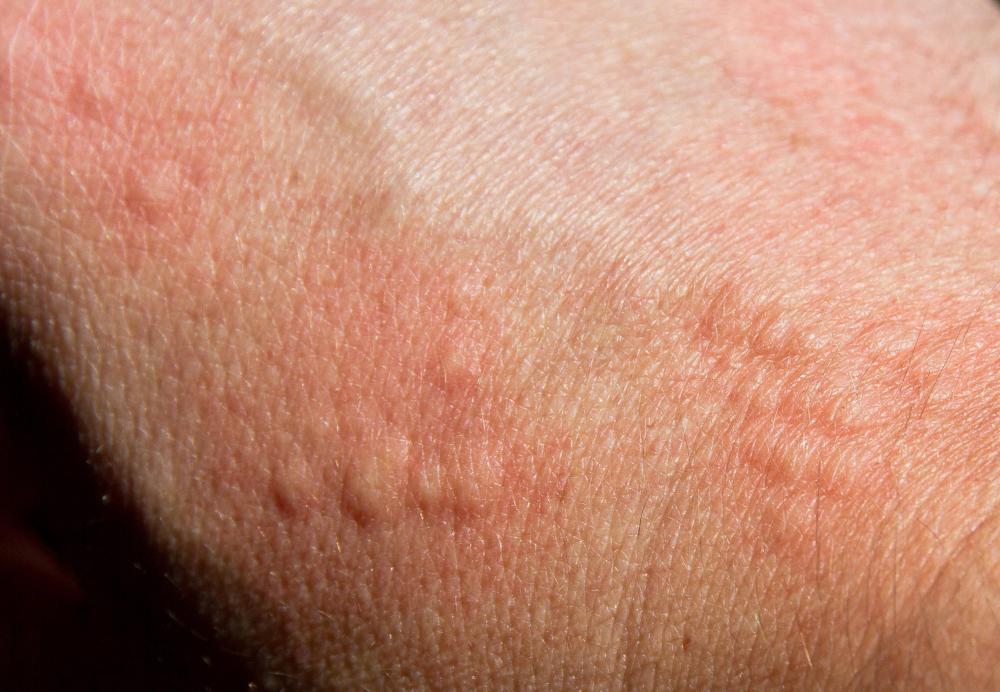At WiseGEEK, we're committed to delivering accurate, trustworthy information. Our expert-authored content is rigorously fact-checked and sourced from credible authorities. Discover how we uphold the highest standards in providing you with reliable knowledge.
What is Carbamazepine?
Carbamazepine is a prescription drug used to treat several conditions related to abnormal electrical activity in the brain. It is most commonly given to patients who suffer from partial or generalized seizure disorders. People with chronic pain and muscle spasms due to facial nerve problems and those with bipolar disorder can also benefit from daily doses of carbamazepine. There are risks of potentially serious side effects with the medication, so doctors are careful when setting dosage amounts and monitoring ongoing treatment. Most people are able to take the drug daily and experience significant symptom relief without major complications.
Anticonvulsants such as carbamazepine work by blocking sodium channels in the brain. Active sodium channels allow neurons to transmit electrical signals, a process that gets out of control in the case of seizure disorders and facial nerve problems. Carbamazepine delays or stops sodium channels from opening in certain parts of the brain to avoid sudden increases in activity. Stabilizing electrical impulses is also beneficial in preventing sudden mood swings in people with bipolar disorder.

Carbamazepine is available in chewable tablets, extended-release capsules, and liquid solutions. A doctor conducts a thorough medical history before prescribing the drug to reduce the chances of adverse effects. Very small initial doses are given initially to make sure the patient does not have a serious negative reaction. Dosage amounts are gradually increased over the first few days or weeks of treatment until a maximally-effective dose is found. Most patients are instructed to take single doses every 12 to 24 hours and be careful not to skip a pill or take too much medicine at a time.

The most common side effects associated with carbamazepine are dry mouth, drowsiness, mild nausea, and dizzy spells. A person may also have heartburn, constipation, and vomiting, though such symptoms are likely to fade after the first few doses as his or her body adjusts to the medication. Serious side effects such as vision loss, chest pains, extreme mental confusion, and a racing heartbeat are possible but rare. It is also possible to experience an allergic reaction to carbamazepine resulting in breathing difficulties and skin hives.
When carbamazepine is taken just as it is prescribed, an individual with a seizure disorder can expect fewer, less severe episodes. The drug cannot prevent seizures altogether, and it is still possible to have a sudden, serious attack despite taking medication. Regular medical checkups are important during treatment to make sure the drug is working properly and to monitor overall changes in a person's physical and mental health.
AS FEATURED ON:
AS FEATURED ON:












Discuss this Article
Post your comments